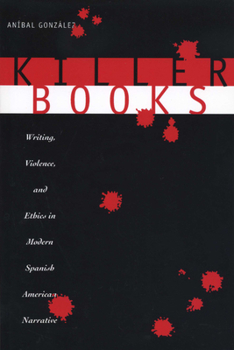Killer Books: Writing, Violence, and Ethics in Modern Spanish American Narrative
Select Format
Select Condition 
Book Overview
Writing and violence have been inextricably linked in Spanish America from the Conquest onward. Spanish authorities used written edicts, laws, permits, regulations, logbooks, and account books to control indigenous peoples whose cultures were predominantly oral, giving rise to a mingled awe and mistrust of the power of the written word that persists in Spanish American culture to the present day.
In this masterful study, An bal Gonz lez traces and describes how Spanish American writers have reflected ethically in their works about writing's relation to violence and about their own relation to writing. Using an approach that owes much to the recent "turn to ethics" in deconstruction and to the works of Jacques Derrida and Emmanuel Levinas, he examines selected short stories and novels by major Spanish American authors from the late nineteenth through the twentieth centuries: Manuel Guti rrez N jera, Manuel Zeno Gand a, Teresa de la Parra, Jorge Luis Borges, Alejo Carpentier, Gabriel Garc a M rquez, and Julio Cort zar. He shows how these authors frequently display an attitude he calls "graphophobia," an intense awareness of the potential dangers of the written word.





